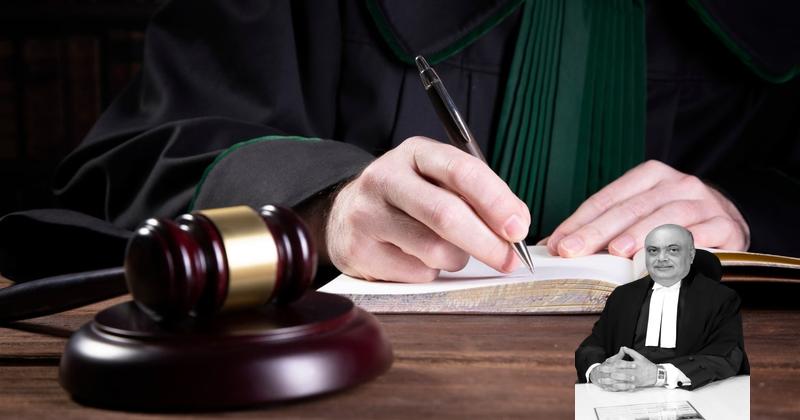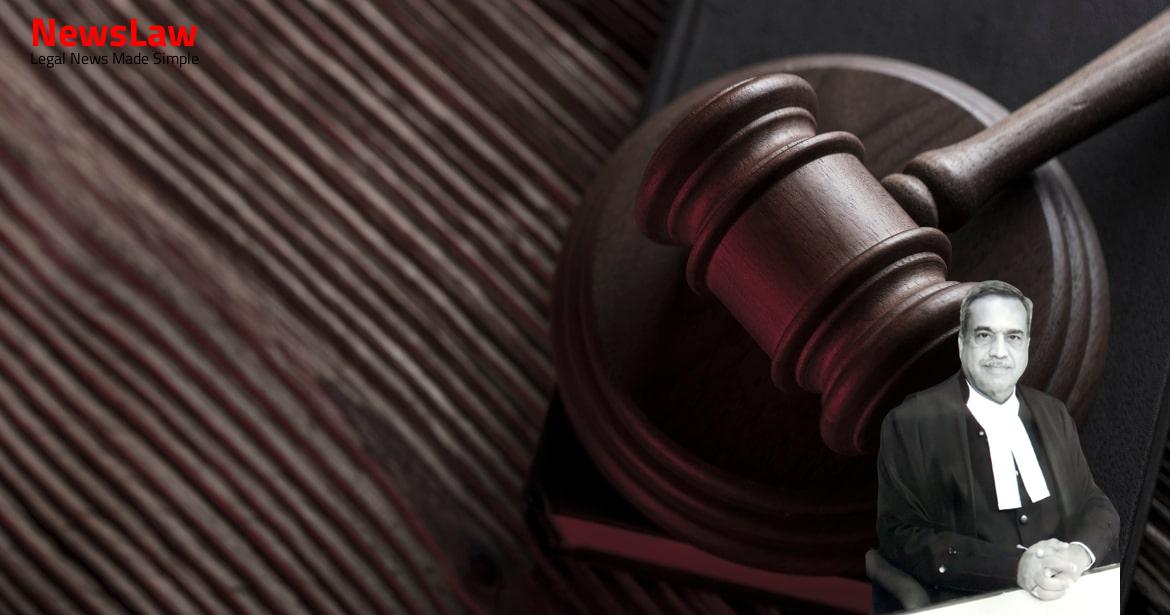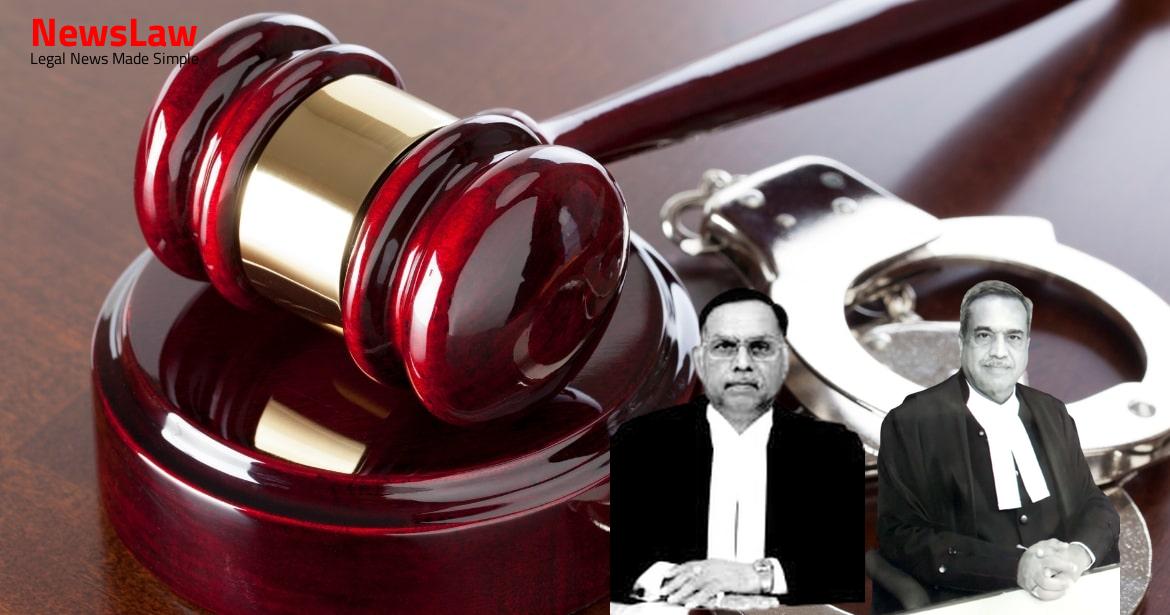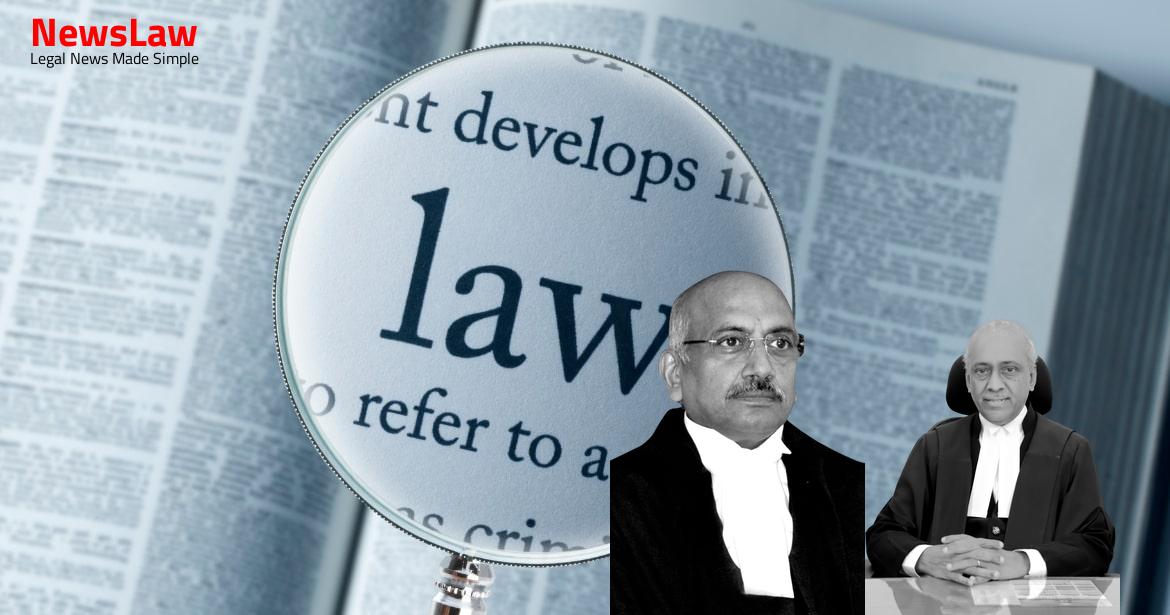The present criminal appeal is directed against the Final Judgment and Order dated 19.02.2010 1 (hereinafter referred to as the “Impugned Judgment”) [2010 SCC OnLine P&H 2558] rendered by the High Court of Punjab and Haryana at Chandigarh dismissing Criminal Writ Petition No 03 of 1997 (hereinafter referred to as the “High Court”) preferred by the appellant (original writ petitioner).
Also Read: https://newslaw.in/supreme-court/jurisdiction-of-nclt-in-valuation-of-assets-a-case-analysis/
On 05.04.1995, the local police conducted a search and a few Jerrycans of Acetic Anhydride, a controlled substance under Section 9A of the Narcotic Drugs and Psychotropic Substances Act, 1985 (hereinafter referred to as the “NDPS Act”), were stated to be located in Pakistani territory and in the fields owned by Indian civilians adjoining the 2 border, for which First Information Report No 92 dated 05.04.1995 i.e., on the same day, was lodged in Police Station Ferozepur, Punjab by the local police naming two persons viz. On the basis of the Inquiry Report, the appellant was issued charge sheet dated 04.07.1995 under Sections 40 & 46 of the Border Security Force Act, 1968 (hereinafter referred to as the “BSF Act”). 92 dated 05.04.1995
(described supra ), namely Surjit Singh @ Pahalwan, moved the High Court, by way of Criminal Miscellaneous No 10562-M of 1996, seeking quashing of the FIR against him. As the same was not being decided by the concerned authority, the appellant moved the High Court vide Civil Writ Petition No 13020 of 1996, which was disposed of by order dated 28.08.1996, directing the respondent-Authority to dispose of the statutory petition within a period of two months. However, the learned counsel for the appellant submitted that Charge No 2, which was identical though the date(s) were 4/5 April, 1995, of having knowingly permitted the two smugglers to take out 44 Jerrycans of 40 litres each of Acetic Anhydride from India to Pakistan from Border fencing gate As far as Charge No 3, of knowingly acting prejudicial to good order and discipline of the Force during his tenure as at Mamdot between November, 1994 and April, 1995 of the 67 Battalion of the Force and having improperly influenced Subedar Didar Singh of his unit to facilitate the alleged smuggling of contraband goods from India, is clearly not established for the reason that it was on the statement of the said Didar Singh (who was his subordinate and the actual in-charge of the area where the said activity is alleged to have occurred) has, clearly, made a statement to save himself from the obvious and severe consequences, which would have entailed.
However, in the present case three punishments were given, which contravenes Rule 102 of the Rules read with Section 48 of the BSF Act. Likewise, it was contended that once the first charge sheet dated 04.07.1995 was dropped, apparently for 8 insufficient evidence, the appellant was required to be discharged under Rule 59(1)(i) of the Rules and thus, the second charge sheet dated 20.10.1995 is illegal more so since Chapter VIII of the Rules do not contemplate the issuance of any second charge sheet under the BSF Act and the Rules. Learned counsel submitted that neither the BSF Act nor the Rules envision withholding pension, gratuity, leave encashment and other dues/benefits of any retiree, after retirement without there being a 9 specific order under Section 48(1)(k) & 48(1)(l) of the BSF Act, which in the present case has admittedly, not been passed.
Also Read: https://newslaw.in/supreme-court/unfair-charge-framing-a-legal-analysis/
In support of such contention, reliance was placed on the decisions of this Court in State of Jharkhand v Jitendra Kumar Srivastava, (2013) 12 SCC 210, the relevant being at Paragraph No 16 holding that a person cannot be deprived of his pension without the authority of law, which is the constitutional mandate enshrined in Article 300A of the Constitution of India, and further, in Veena Pandey v Union of India, (2022) 2 SCC 379, the relevant being at Paragraph No 10 where it was held that pension is the deferred portion of compensation for rendering long years of service and is a hard- earned benefit accruing to an employee and has been held to be in the nature of property. Summing up, it was submitted by learned counsel for the appellant that there have also been violations of other statutory provisions of the BSF Act and the Rules and the principles of natural justice were not conformed to during trial. It was submitted that there was no infirmity in the appellant being tried separately as he was charged under the NDPS Act and under Sections 40 & 46 of the BSF Act read with Section 25 of the NDPS Act. Satpal was tried by GSFC and inflicted with reduction to the rank of Lance Naik (L/NK), and Constable Keshav Singh 11 was tried by the GSFC and awarded sentence of rigorous imprisonment for 45 days in force custody. On the question of pension, gratuity and other retiral benefits being withheld, learned counsel for the respondents submitted that the appellant had been paid GPF and CGEIS. Having perused the materials on record and surveyed the relevant judicial pronouncements, upon an overall examination, this Court is unable to uphold the view taken by the learned Single Bench of the High Court.
… It is equally true that the penalty imposed must be commensurate with the gravity of the misconduct, and that any penalty disproportionate to the gravity of the misconduct would be violative of Article 14 of the Constitution. In Andhra Pradesh Industrial Infrastructure Corporation Limited v S N Raj Kumar, (2018) 6 SCC 410, this Court exposited: 14 “20…. 601-605; see also, Wade: Administrative Law (2009), pp.
Another factor which has nudged this Court to introspect vis–vis proportionality herein, is that the appellant has served the country for over 31 12 years without blame or blemish, and has received various awards, inter alia, including medal from Hon’ble the President of India. On the alleged criminality, the undisputed and uncontroverted fact remains that the appellant was commanding the Force operating over a large area, 16 including from where the Jerrycans allegedly moved from the Indian side to the Pakistani side.
Illustratively, it would not be out of place to draw an analogy from a situation where a crime occurs under the jurisdiction of the Superintendent of Police and in the criminal proceedings emanating therefrom, some police personnel are held guilty, and thereafter, a criminal case as also departmental proceedings, based on such acts of commissions or omissions, is opened against the said Superintendent of Police, on the premise that such incident transpired under his overall watch and control.
This Court would hasten to add that it should not be construed that the appellant, being the Commandant, had no responsibility/duty to prevent such incident, but to stretch it to the extent to label him an active partner and/or facilitator of such crime is wholly unjustified, having regard to the present factual matrix. It is, however, well established and reiterated in several decisions of this Court that based on the consideration of other evidence on record and if such evidence sufficiently supports the case of the prosecution and if it requires further support, the confession of a co-accused can be pressed into service and reliance can be placed upon it. As emphasised hereinbefore, save and incriminating except Subedar Didar Singh’s statement, roping in the appellant, there is no material against him. Hence, ceteris paribus, without other material(s) the appellant or pointing to his guilt, the statement of a single person alone, ought not to have, in this instance, resulted in his conviction. If the High Court had the jurisdiction to entertain either an appeal or a revision application or a writ petition under Articles 226 and 227 of the Constitution of India, in a given case it, subject to fulfilment of other conditions, could even convert a revision application or a writ petition into an appeal or vice versa in exercise of its inherent power. ”, as highlighted in Surya Dev Rai v Ram Chander Rai, (2003) 6 SCC 675. (as he then was) in E P Royappa v State of Tamil Nadu, AIR 1974 SC 555] the extraordinary powers vested under Articles 226 or 227 of the Constitution.
In Shakuntala Shukla v State of Uttar Pradesh, 2021 SCC OnLine SC 672, this Court had the occasion to observe: “ 35.
Case Title: B.S. HARI COMMANDANT Vs. UNION OF INDIA (2023 INSC 369)
Case Number: Crl.A. No.-001890-001890 / 2014



